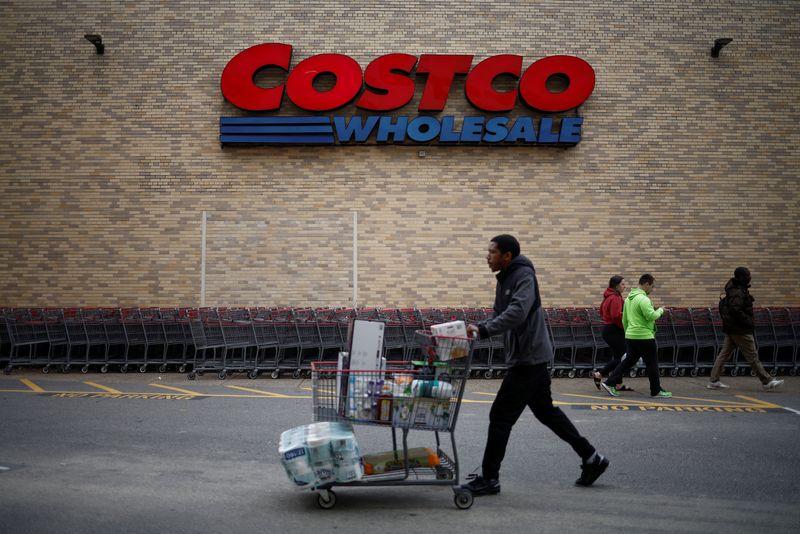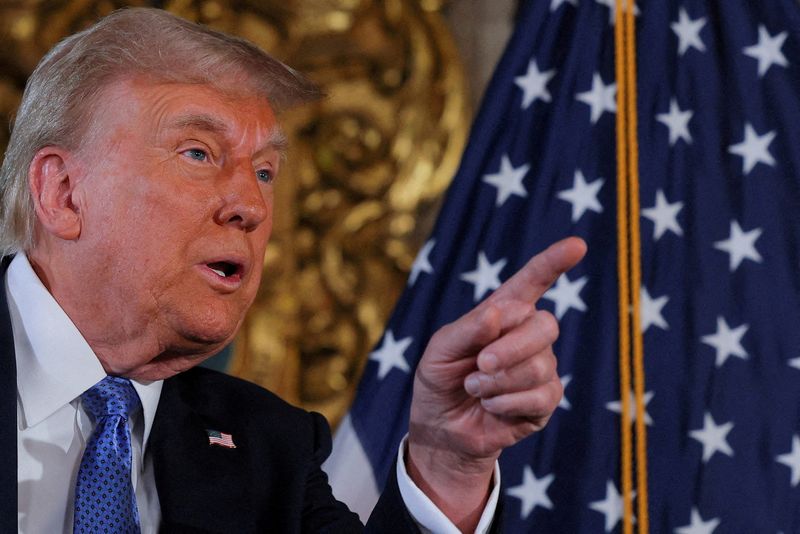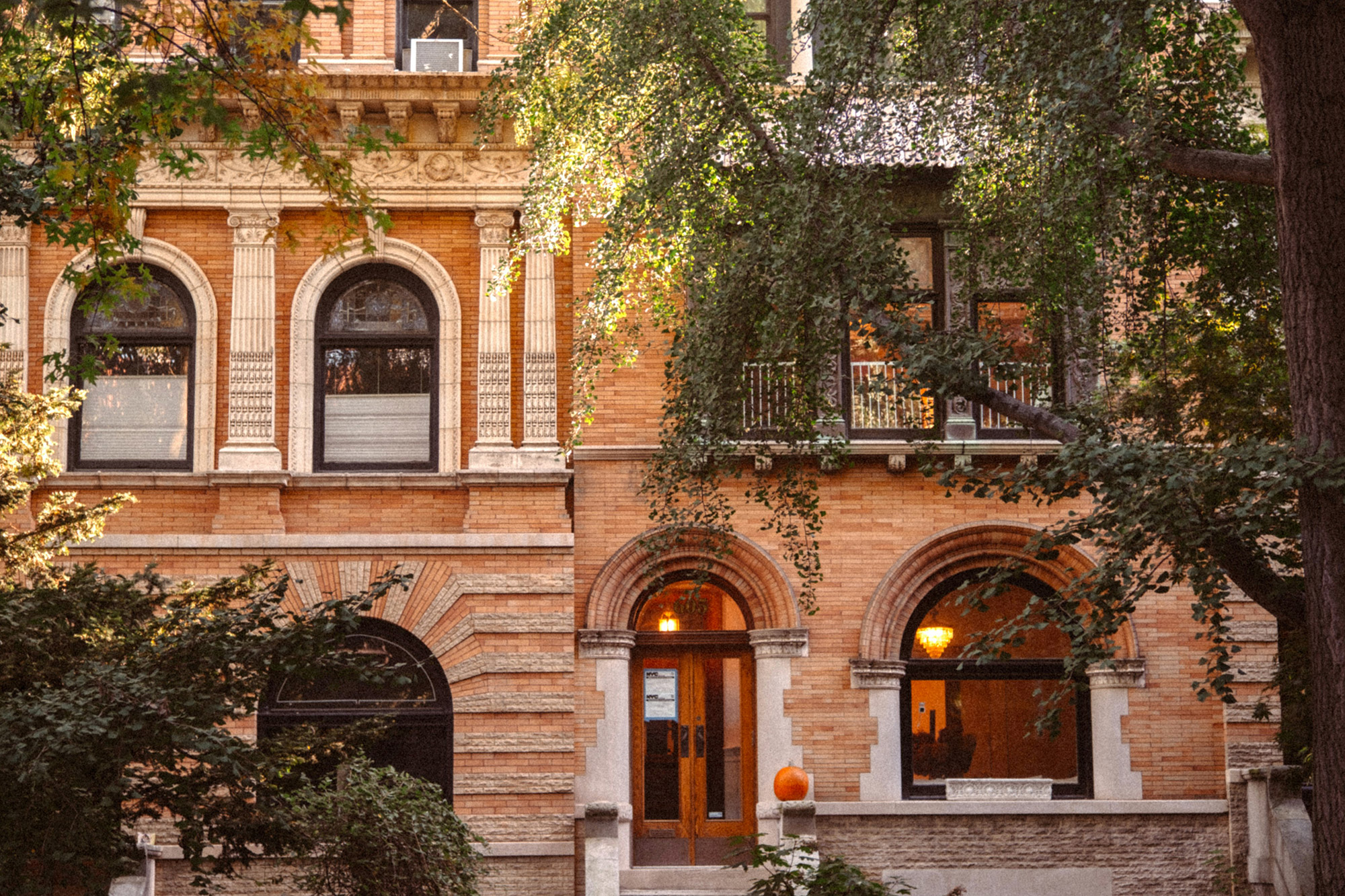Kamala Harris got a debate bump — but not enough to make her the favorite
Here’s a close look at how the polls have shifted after Kamala Harris’ debate with Donald Trump.
Kamala Harris didn’t get much of a post-debate bounce.
Instead of taking a clear lead over Donald Trump, the polls have shifted only slightly in the vice president’s favor — especially in the battleground states — even though voters overwhelmingly crowned her the winner of the high-stakes showdown. It’s nowhere near enough to change the underlying reality: Harris and Trump are still on a collision course for a very close finish in November.
The debate was a huge chance for Harris to prove her mettle on stage with Trump, facing off for the first and likely last time. And by all measures she exceeded expectations, with large majorities calling her the stronger candidate on stage. In a New York Times/Siena College poll, two-in-three likely voters, 67 percent, said she did well at the debate; just 40 percent said the same of Trump.
And a huge swath of voters saw Harris’ decisive victory: Some 67 million Americans watched, on track to be the second-biggest TV audience for a single event this year — behind only the Super Bowl.
But surveys point to just a slight Harris bump, with national polls showing the Democrat’s lead has grown by about 1 percentage point since the day of the debate — even including national polls from NBC News and CBS News on Sunday giving Harris a mid-single-digit lead. Across three major polling averages, Harris’ national lead — which ranged between 1.1 and 2.5 points on Sept. 10 — is now between 2.2 and 3 points, after Sunday’s new surveys were added.
There’s also been an avalanche of battleground state data released over the past few days showing an even more modest improvement for Harris. Dive into the seven core states, and it’s clear that Harris’ lead is still remarkably small and fragile — particularly considering how pollsters have underestimated Trump in recent elections.
In all, Harris has average leads of 1 point or greater in only two battleground states. In the other five, at least one polling average shows the race within a single point.
Here’s where the race stands in the battleground states:
Arizona (11 electoral votes)
FiveThirtyEight average: Trump +0.5 (On Sept. 10: Trump +1)
RealClearPolitics average: Trump +1.6 (On Sept. 10: Trump +1.5)
Silver Bulletin average: Trump +0.7 (On Sept. 10: Trump +1.9)
2020 result: Biden +0.3
There have been only two polls (of dubious quality) conducted entirely after the debate, with each showing Trump with a 1-point lead. Of the seven core swing states, Arizona and Nevada are the most sporadically polled.
Georgia (16 electoral votes)
FiveThirtyEight average: Trump +1.0 (On Sept. 10: Trump +0.8)
RealClearPolitics average: Trump +1.7 (On Sept. 10: Trump +0.3)
Silver Bulletin average: Trump +0.8 (On Sept. 10: Trump +0.7)
2020 result: Biden +0.2
An Atlanta Journal-Constitution poll conducted mostly after the debate found Trump with a 3-point lead in Georgia, 47 percent to 44 percent. The poll showed Harris at 77 percent with Black voters; now-President Joe Biden won about 90 percent of African Americans in the state four years ago, according to surveys with 2020 election voters.
Michigan (15 electoral votes)
FiveThirtyEight average: Harris +2.7 (On Sept. 10: Harris +1.7)
RealClearPolitics average: Harris +1.7 (On Sept. 10: Harris +1.2)
Silver Bulletin average: Harris +2.5 (On Sept. 10: Harris +1.6)
2020 result: Biden +2.8
Michigan, which Biden won by nearly 3 points in 2020, has emerged as Harris’ best battleground state. Her numbers are up about a point since the day of the debate, thanks to 5-point leads in polls from Marist College and Quinnipiac University.
The Marist poll shows Harris winning about two-thirds of the vote in Wayne County, home to Detroit, 66 percent to 34 percent. That’s only slightly behind Biden’s 2020 margin over Trump: 68 percent to 30 percent.
Nevada (6 electoral votes)
FiveThirtyEight average: Harris +0.8 (On Sept. 10: Trump +0.1)
RealClearPolitics average: Harris +0.2 (On Sept. 10: Harris +0.6)
Silver Bulletin average: Harris +1.2 (On Sept. 10: Harris +0.2)
2020 result: Biden +2.4
Like in Arizona, there isn’t much post-debate Nevada polling. The two candidates were essentially neck-and-neck in two polls conducted entirely after the debate.
Two of the averages show Harris ticking up about a point since the debate, while RealClearPolitics shows a slight decline for the vice president. The reason for the difference? RealClearPolitics doesn’t include a mostly post-debate poll from Morning Consult that gave Harris a 4-point lead — one of the best results for either Biden or Harris all year.
North Carolina (16 electoral votes)
FiveThirtyEight average: Trump +0.1 (On Sept. 10: Tied)
RealClearPolitics average: Trump +0.1 (On Sept. 10: Trump +0.1)
Silver Bulletin average: Trump +0.1 (On Sept. 10: Harris +0.1)
2020 result: Trump +1.3
In a collection of closely fought battleground states, this is the tightest one: All three polling averages essentially show a dead heat, which is also unchanged from before the debate.
These polls were all conducted before the recent revelations about GOP gubernatorial nominee, Mark Robinson, the lieutenant governor who was the apparent author of offensive posts on a pornographic website years ago. And while the existence of “reverse coattails” — a presidential candidate being affected positively or negatively by a race down ballot — is in question, it wouldn’t take much for Robinson to hurt Trump’s odds, given how close the presidential contest is.
Pennsylvania (19 electoral votes)
FiveThirtyEight average: Harris +1.5 (On Sept. 10: Harris +0.5)
RealClearPolitics average: Harris +0.7 (On Sept. 10: Tied)
Silver Bulletin average: Harris +1.5 (On Sept. 10: Harris +0.3)
2020 result: Biden +1.2
The best news for Harris over the past two weeks is the discernible movement in Pennsylvania, the most important battleground state due to its size and political orientation. Harris has gained about a point since the debate in all three polling averages, and there’s been a greater volume of reliable polls than in other states.
The post-debate polls include new surveys that point to a Harris lead, from New York Times/Philadelphia Inquirer/Siena College (Harris +4), Quinnipiac University (Harris +6) and Suffolk University/USA Today (Harris +3) — but also surveys that show the race tied, from Marist College and The Washington Post.
Wisconsin (10 electoral votes)
FiveThirtyEight average: Harris +1.9 (On Sept. 10: Harris +2.4)
RealClearPolitics average: Harris +1 (On Sept. 10: Harris +1.8)
Silver Bulletin average: Harris +1.9 (On Sept. 10: Harris +2)
2020 result: Biden +0.6
Harris’ lead has actually shrunk slightly in Wisconsin. Polls this week from Marist College, Quinnipiac University and AARP (conducted by a bipartisan team of pollsters) all showed Harris with a 1-point lead, which contributed to the tightening of the race.
The New York Times this weekend chronicled a history of the polls overestimating Democrats in Wisconsin, including in 2016 (when surveys suggested Hillary Clinton had a small-but-consistent edge that disappeared when Trump because the first Republican since 1984 to carry the state) and 2020 (when Biden’s larger lead nearly evaporated entirely).
What's Your Reaction?



























:quality(85):upscale()/2024/09/09/785/n/1922283/901e710666df358b373de2.40207443_.jpg?#)
:quality(85):upscale()/2024/07/23/904/n/1922283/dc92642c66a0159ee98db4.72095370_.jpg?#)
:quality(85):upscale()/2024/07/10/842/n/1922283/8fb902af668edd399936b2.17277875_.jpg?#)
:quality(85):upscale()/2024/06/07/909/n/1922283/82a389f8666372643f2065.06111128_.jpg?#)
:quality(85):upscale()/2024/06/07/726/n/1922283/10bee64e666334778cf548.63095318_.jpg?#)
:quality(85):upscale()/2025/01/08/844/n/1922398/cde2aeac677eceef03f2d1.00424146_.jpg)
:quality(85):upscale()/2024/11/27/891/n/1922398/123acea767477facdac4d4.08554212_.jpg)
:quality(85):upscale()/2024/12/02/919/n/1922398/2b4b75f6674e20edcc99c3.42112799_.jpg)
:quality(85):upscale()/2024/10/29/690/n/1922398/e9bec6b46721006258d949.01358236_.jpg)
:quality(85):upscale()/2024/10/09/794/n/1922283/3f35cdf56706c5a92ddff9.14514426_.jpg)








:quality(85):upscale()/2024/02/21/214/n/1922283/8118faa965d6c8fb81c667.06493919_.jpg?#)


